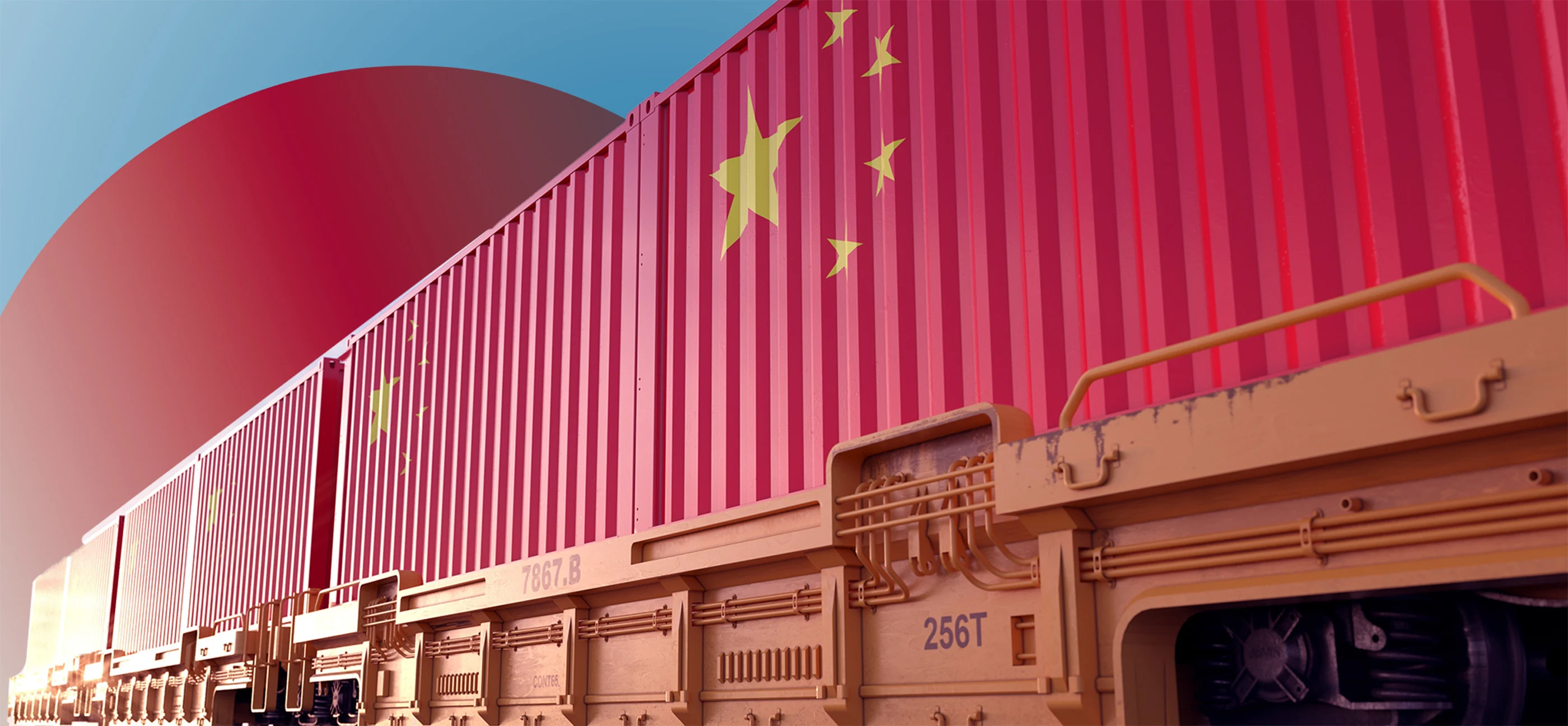
When former President Donald Trump slapped sweeping tariffs on Chinese imports in 2019, the economic dynamics between the world’s two biggest economies forever shifted.
American businesses hoping President Joe Biden would return to decades-long precedent instead find some tariffs escalating, upending longstanding principles of free trade established when China joined the World Trade Organization in 2001.
Today, multinational firms must adapt, both in terms of trade and doing business within China itself. In fact, some experts say the biggest risk for multinational firms may now be policy changes from Washington, not Beijing.
HBS Working Knowledge gathered advice from faculty on this radical shift for firms and how they can adapt to and navigate this new terrain.
Jaya Wen and Ebehi Iyoha: Leverage microdata to navigate tariffs
In May, President Biden elected to maintain, and in certain cases escalate, tariffs placed on Chinese exports by former President Trump. This move is emblematic of a global turn toward protectionism and trade restrictions in the last decade. Businesses have taken diverse approaches in adapting to this new economic landscape, including:
Buying from new overseas suppliers. One example is Hasbro, which began sourcing from firms in India, Vietnam, and Mexico in the last five years.
Moving existing suppliers out of China. Goertek, a supplier of Google’s Pixel watch, and Foxconn, a manufacturer of Apple’s MacBook, have both relocated production from China to Vietnam.
Investing in domestic manufacturing. Some companies, like Intel, have expanded US manufacturing capabilities, supported by new subsidies.
However, the true extent to which US tariffs have stemmed the inflow of Chinese exports is unclear. Critics worry that tariffs are widely circumvented by rerouting through intermediary countries, pointing to an increase in imports from China and a corresponding rise in exports to the United States since 2018 in countries like Vietnam and Mexico as evidence. Due to these concerns, some advocate for additional restrictions on trade with suspected transit countries or all Chinese-owned firms.
When weighing these options, we recommend policymakers leverage rich new sources of microdata, which can paint a different picture from aggregate statistics.
Businesses hoping to hedge against policy risks may also benefit from extra due diligence.
For example, 2021 transaction-level trade data from Vietnam shows that most bicycle tires imported from China went to a manufacturer in Ho Chi Minh City, whereas most bicycle tire exports to the US were made by tire manufacturers in a rubber-producing province. This flow would be misclassified as rerouting under aggregate data but constitutes legitimate economic activity.
Businesses hoping to hedge against policy risks may also benefit from extra due diligence for their suppliers to establish whether they have Chinese ownership stakes or may be engaging in rerouting activities.
Jaya Wen and Ebehi Iyoha are assistant professors in the Business, Government, and International Economy and Entrepreneurial Management Units, respectively.
Meg Rithmire: Prepare to adapt to the policy backlash
For at least a generation leading up to China’s admission into the World Trade Organization in 2001 and, by extension, the global economy, US policymakers touted economic integration with the world’s most populous nation as a path to mutual prosperity and peace.
Leaders including former US President Bill Clinton argued global capitalism would push China onto a path of political and economic liberalization. Others pointed to classical Kantian ideas such as the pacifying effects of trade and that economic ties were a mechanism of security for China, the US, and other major economies.
So, it is a great irony that now, in the context of China’s growing global power and American concerns about that power, economic interdependence is the primary motivation for insecurity and policy actions to manage competition with China.
In work I coauthored with Margaret Pearson of the University of Maryland and Kellee Tsai of Northeastern University, we explore China’s domestic political economic transformation and the subsequent international backlash in a number of ways.
Increasing restrictions to transnational commerce in and with China are best understood in terms of security dilemma dynamics.
We argue that China’s turn to regime security as a priority over economic growth predates Xi Jinping’s administration and is a reaction to the Chinese Communist Party’s own perception of insecurity at home and in the global economy.
Increasing restrictions to transnational commerce in and with China are best understood in terms of security dilemma dynamics. Industrial policy and laws implicating firms in national security efforts, for example, produce unwelcome reactions from other countries.
My research is currently focused on how firms are reshaping their practices in response to this new geopolitical context and economic security concerns in the US, China, and elsewhere. Businesses, and US businesses in particular, should consider two broad sets of uncertainties as they engage in China and globally.
First, as most are already aware, the role of the party-state in China’s economy is no longer restricted to pro-development efforts and ownership of large firms at the commanding heights of the economy. Over the last decade, we have seen the Chinese Communist Party’s (CCP) involvement in corporate governance grow significantly as a shareholder and through political and legal interventions.
While it is not correct at all to assume that every firm is doing the CCP’s bidding, businesses should understand the landscape of security concerns and actors in China. Firms should also learn how US policymakers view the security implications of their business and sector as a whole.Second, the nature of China’s political economic system and the fact that both the US economy and China’s are technologically advanced has led to sweeping sets of executive orders and institutional changes, especially in the US.
Businesses need to understand that the policy tools in the US—including export controls, investment reviews, entity listings, investment restrictions, and even industrial policy—are dynamic and evolving areas of change for transnational commerce. These factors are likely to remain important for the foreseeable future.
Meg Rithmire is the F. Warren MacFarlan Associate Professor in the Business, Government, and International Economy Unit.
William Kirby: Know that the biggest risk lies in Washington
The People’s Republic of China is more open to foreign investment and trade than it has ever been. Beijing has recently removed restrictions on foreign investment in the manufacturing sector and given unprecedented access to foreign investors to sectors such as telecommunications.
Meanwhile, the United States has become increasingly less open as both of its political parties espouse protectionist policies. A few examples:
New passenger cars for the Massachusetts Bay Transportation Authority (MBTA), Boston’s ancient and woeful subway system, have been purchased from CRRC, the world’s leading rail car manufacturer headquartered in Beijing. These cars are assembled by American workers in Springfield, Massachusetts, a city that until 1920 was the center of US railway manufacturing. CRRC has made the largest industrial investment in Springfield in a half century. No American company makes subway cars today. Yet, Senator Majority Leader Chuck Schumer describes Chinese railcars as a potential national security threat. Might there be spyware on the Red Line?
CATL, the innovative Chinese battery-manufacturer, entered a joint venture with Ford to provide low-cost lithium-ion batteries. No American battery company comes close to CATL. Under intense political pressure, the project has been delayed and scaled back. A Michigan plant was set to create 2,500 jobs. Ford was to retain 100 percent ownership in a unique joint venture structure. That now seems unlikely.
ByteDance, with many American investors and board members (as I explain in this ABC x Nightline documentary), faces wild scrutiny over its international subsidiary, TikTok. It is a strange world when its two leading powers contest the future of a teenage video app.
American protectionism is not only leveled at Chinese companies. Nippon Steel’s proposed acquisition of U.S. Steel has all but been blocked despite the Japanese firm’s planned $1.4 billion investment to improve U.S. Steel’s older mills.
When assessing regulatory risks as a multinational company seeking to do business on both sides of the Pacific, the biggest risk now comes from Washington. It is never clear when the next salvo of export controls or restrictions will be imposed. China has become more predictable than the United States.
Multinational firms have long created risk mitigation strategies to deal with China.
Meanwhile, many US export controls have been ineffectual and counterproductive. My recent HBS case on Huawei shows how this resilient Chinese firm came up with a seven nanometer chip to equip their latest and best selling smartphone—despite (or because of?) US restrictions.
Today, several American companies from myriad industries, including Starbucks, Pfizer, Ralph Lauren, and Corning, have expanded in China despite the increasingly complex geopolitical relationship. Even American chip technology companies, such as Lam Research and Wolfspeed, have expanded in China in recent years.
Multinational firms have long created risk mitigation strategies to deal with China. They must now do the same for the United States.
William C. Kirby is the T.M. Chang Professor of China Studies at Harvard University and the Spangler Family Professor of Business Administration.
Jeremy Friedman: Businesses must take a new approach
It is time for US businesses to accept that the US-China economic relationship, the largest trade relationship between two countries on the planet, has been permanently transformed and will not return to the pre-Trump, pre-COVID status quo any time soon.
The combination of a bipartisan consensus on China in Washington and the disappearance of support for free trade on the US side, and in China, the conviction that Washington is necessarily determined to contain and strangle its rise, means that a return to the era of “strategic partnership” is not on the horizon.
The problem is that firms have been largely hoping to weather the storm and conduct business as usual as best as they can in the meantime. This has created an adversarial relationship between US businesses and the US government.
Legislators and regulators view businesses as pursuing profits over patriotism. Therefore, they distrust the motivations of business representatives or lobbyists who seek to influence legislation and regulation.
Recovering the US business community’s voice in the legislative and regulative process will require a new approach.
Why is this a problem? Because creating the “small yard with a high fence” that National Security Advisor Jake Sullivan mentions—without provoking conflict or strangling economic development—requires walking a tightrope that the government is ill-equipped to do.
Business expertise, especially in advanced technologies, is crucial to making such policies work, particularly balancing security interests with economic interests to avoid provoking precisely the sort of damaging confrontation that we would like to avoid.
Recovering the US business community’s voice in the legislative and regulative process will require a new approach. Instead of behind-the-scenes lobbying and maneuvering on individual pieces of legislation and regulation, businesses need to use collective institutions to define and promote a positive, values-based, non-partisan agenda. That will allow them to regain credibility in the public sphere as a legitimate voice in the China debate.
This could involve cultivating a role as a “thought leader” by finding ways to engage the public on these issues including participating in public forums and congressional hearings, disseminating messages in mass and social media, and creating arenas for public engagement.
It should also include seeking to advise the government on policy frameworks where they have greater expertise in ways that balance the protection of national security with business and innovation. Finally, businesses can attempt to create their own codes of conduct to regulate economic engagement with China.
Jeremy Friedman is the Marvin Bower Associate Professor of Business, Government, and the International Economy.
You Might Also Like:
Economic Growth Draws Companies to Asia. Can They Handle Its Authoritarian Regimes?
How SHEIN and Temu Conquered Fast Fashion—and Forged a New Business Model
Feedback or ideas to share? Email the Working Knowledge team at hbswk@hbs.edu.
Image: Image created by HBSWK using asset from AdobeStock/Negro Elkha





